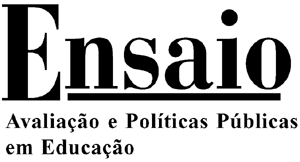Abstract
This study aims to analyze how the knowledge produced by national researches support the arguments for the use of digital technologies in high school in the theoretical conceptions of the National Common Curricular Base (BNCC). The theoretical foundation is based on the legal frameworks that support the BNCC and the concepts of computational thinking, digital culture and digital world, establishing the connections between these themes. A qualitative study was carried out on 295 theses and dissertations of the 21st century and the following methodologies were applied: “State of the Art”, as a technique for data collection, and “Content Analysis” for data analysis. Based on the study, it was concluded that although the Base places many expectations regarding the use of technologies in High School, it cannot express this explicitly when deals with the subject and, although young people demand a more modern school, they don’t know how to react to activities that demand autonomy from them.
Curriculum; National Common Curricular Base – BNCC; High School; Technologies in Education

 Thumbnail
Thumbnail
 Fonte: Elaborado pelos autores baseado no histórico exposto no site: http://basenacionalcomum.mec.gov.br/historico (2018)
Fonte: Elaborado pelos autores baseado no histórico exposto no site: http://basenacionalcomum.mec.gov.br/historico (2018)